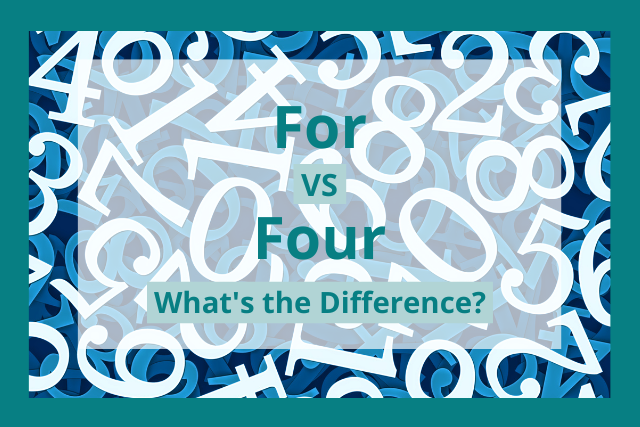
The words for and four are often confused because of their similar sound. Do you know the difference?
For means with the object or purpose of when used as a preposition.
Four means the number after three and before five when used as a noun.
A good way to remember the difference is the number four has 4 letters.
The Difference Between For vs Four
Homophones are words that sound the same but have different spellings and meanings. These words are easy to confuse.
Four is the number that comes after "three" and before "five."
For is a preposition that means "with the object or purpose of, in order to gain or acquire." It can also be used as a conjunction to mean "because."
Should I use ', for example' or ', four example'?
The right phrase is ', for example ,'. These phrases are often confused because they sound the same.
Which is correct 'for the first time' or 'four the first time'?
You should use 'for the first time'. These phrases are often confused because they sound similar.
Should I use ', for instance' or ', four instance'?
The correct expression is ', for instance ,'. These phrases are often confused because they are homophones.
What's the correct phrase 'for the purpose of' or 'four the purpose of'?
The correct expression is 'for the purpose of'. These phrases are often confused because they sound the same.
Should I use 'for the most part' or 'four the most part'?
The right phrase is 'for the most part'. These phrases are often confused because they have the same pronunciation but different meanings.
Is the correct expression 'sixty-four thousand question' or 'sixty-for thousand question'?
The right phrase is 'sixty-four thousand question'. These phrases are often confused because they are homophones.
Is the correct phrase 'four on the floor' or 'for on the floor'?
The correct expression is 'four on the floor'. These phrases are often confused because they are homophones.
Some synonyms of four are: 4, fourth, and iv.
Some synonyms of for are: toward, in order to, and because.
